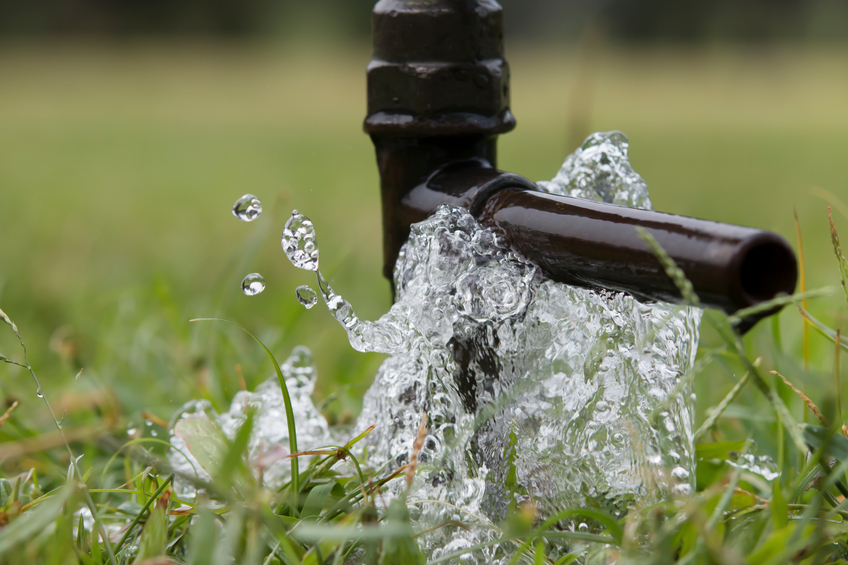Texas Chemical and Ethics 15 PDH Discount Package 2
Ozone Depleting Substances (ODS) Destruction in the US & Abroad (C04-059)
Algal Indicators in Streams (H03-007)
An Introduction to Membrane Techniques for Water Desalination (H03-004)
Ethics in Professional Practice (LE2-007)

This online engineering PDH course provides guidance on building field capabilities in order to respond to the contamination of drinking water. The course also provides planning and implementation guidance, templates, customizable report forms, and other documentation for Sampling and Analysis (S&A) activities.
When performed in response to possible or credible drinking water contamination, the goal of Sampling and Analysis (S&A) is to confirm or rule out contamination through field and laboratory testing. It is one of the earliest utility-led activities initiated when the utility has activated its drinking water contamination response plan and continues throughout remediation and recovery if contamination is confirmed.
This 3 PDH online course is intended for chemical and environmental engineers as well as others who are interested in learning more about building field capabilities in order to respond to the contamination of drinking water.
This PE continuing education course is intended to provide you with the following specific knowledge and skills:
- Familiarizing with planning and documentation for visual site hazard assessment, sample collection, and sample packaging and shipping
- Familiarizing with planning and documentation for site safety screening, rapid field testing, and hazardous materials packaging and shipping
- Understanding the staffing requirements to perform basic and advanced field activities
- Taking into consideration field response health and safety
- Familiarizing with quality assurance and quality control
- Understanding emergency response procedures
- Familiarizing with the considerations for preparation, placement, and contents of emergency response sampling and analysis kits
Upon successful completion of the quiz, print your Certificate of Completion instantly. (Note: if you are paying by check or money order, you will be able to print it after we receive your payment.) For your convenience, we will also email it to you. Please note that you can log in to your account at any time to access and print your Certificate of Completion.

This online engineering PDH course discusses the sources of ozone depleting substances (ODS) in the United States and abroad and defines the best practices for the safe, environmentally sound collection, recovery, transport, and destruction of these substances. In addition, this course explains the challenges associated with the safe destruction of ODS and assesses the costs for the ODS waste management process.
The Montreal Protocol on Substances that Deplete the Ozone Layer (Montreal Protocol), finalized in 1987, is a global agreement to protect the stratospheric ozone layer by phasing out the production and consumption of ODS.
While the global ODS phaseout is underway, a large amount of ODS is in equipment and products such as refrigerators and air conditioners (as refrigerant and foam blowing agent), foam contained in buildings, and fire protection systems and fire extinguishers, as well as in stockpiles held by countries and industrial and commercial users. Together these sources are referred to as ODS banks.
This 4 PDH online course is intended for environmental, sustainability, industrial, and mechanical engineers, as well as others interested in learning about the best practices for destruction of ODS.
This PE continuing education course is intended to provide you with the following specific knowledge and skills:
- Familiarizing with the sources of ODS
- Learning about the best management practices regarding the process of ODS destruction
- Familiarizing with ODS destruction technologies and facilities in the U.S. and worldwide
- Gaining perspective and metrics on the international efforts to destroy ODS
- Understanding the financial considerations of ODS recovery, transportation, and destruction costs
Upon successful completion of the quiz, print your Certificate of Completion instantly. (Note: if you are paying by check or money order, you will be able to print it after we receive your payment.) For your convenience, we will also email it to you. Please note that you can log in to your account at any time to access and print your Certificate of Completion.

This online engineering PDH course summarizes the application of algae as indicators of nutrient pollution in water quality management. It describes the use of algal indicators to develop water quality diagnostics for nutrient pollution in the United States (U.S.) and then reviews scientific developments in the use and application of algal indicators across the world.
Algae are ubiquitous and essential components of all stream ecosystems. They are the primary energetic source for many stream food webs, fixing carbon from the atmosphere through photosynthesis, which is then transmitted through the web via consumer pathways.
Algae have a long history of use and possess many of the features valued in ecological indicators. They were part of the early saprobien indicator system development in Germany and were one of the first assemblages developed for use in biological assessment in the United States.
This 3 PDH online course is intended for chemical and environmental engineers and water quality professionals who are seeking to utilize algae to detect the presence of nutrient pollution and to estimate the risks of nutrient pollution in adversely affecting the condition of stream ecosystems.
This PE continuing education course is intended to provide you with the following specific knowledge and skills:
- Gaining general background information on algae
- Familiarizing with the current algal sampling programs in the United States
- Learning about the research on algal assessment and indicator using in streams
- Identifying the quantitative and qualitative algal application methods
Upon successful completion of the quiz, print your Certificate of Completion instantly. (Note: if you are paying by check or money order, you will be able to print it after we receive your payment.) For your convenience, we will also email it to you. Please note that you can log in to your account at any time to access and print your Certificate of Completion.

This online engineering PDH course will introduce you to techniques for water desalination using membrane technology. You will learn about the theory of electrodialysis, electrodialysis stacks, electrodialysis reversal, and reverse osmosis. It will discuss the advantages and disadvantages of system configurations and membrane materials. You will learn about the materials and equipment employed in typical membrane water desalination plants.
Water desalination systems may employ different technologies depending on a variety of technical and economic factors. One of the most important systems relies on membrane technology.
This 3 PDH online course course is intended for civil engineers, environmental engineers, mechanical engineers, electrical engineers and other design and construction professionals wanting an introduction to membrane techniques for water desalination. After completion of this course you will be prepared for advanced learning about membrane systems for water desalination, which in turn will prepare you for desalination project planning and design.
This PE continuing education online is intended to provide you with the following specific knowledge and skills:
- Learning the theory behind electrodialysis
- Learning about electrodialysis stacks and the importance of electrodialysis reversal
- Learn about osmotic pressure and the reverse osmosis technology
- Understanding the importance of energy recovery in membrane systems
- Learning about spiral-wound membranes and how they are employed in water desalination
- Understnding the advantages and disadvantages of membrane materials
In this professional engineering CEU course, you need to review the course document titled, "An Introduction to Membrane Techniques for Water Desalination".
Upon successful completion of the quiz, print your Certificate of Completion instantly. (Note: if you are paying by check or money order, you will be able to print it after we receive your payment.) For your convenience, we will also email it to you. Please note that you can log in to your account at any time to access and print your Certificate of Completion.

In this online engineering PDH course, background on the philosophical models that guide ethical behavior is discussed and then applied to specific situations in engineering codes of ethics. This course is based on the American Society of Mechanical Engineers Professional Practice Curriculum, Volume 8, Section: Engineering Ethics.
Many engineering organizations have drafted codes of ethics to which their members are required to commit. Generally, these codes are quite similar and are based on a few fundamental principles which provide guidance to professional engineers in common situations. Nevertheless, there are many difficult or ambiguous situations in which the best ethical solution is difficult to determine.
This 2 PDH online course is intended primarily for engineers seeking to learn ethical principles and how to apply them to their professional practice.
This PE continuing education course is intended to provide you with the following specific knowledge and skills:
-
Determining ethical behavior using several philosophical models
-
Evaluating a practical situation in terms of a professional code of ethics
-
Identifying situations that represent conflicts of interest and formulate a proper response
-
Applying the standards of professional ethics in technical communication
-
Recognizing environmental impacts of engineering work
-
Considering principles of sustainable development in the performance of professional duties
In this professional engineering CEU course, you need to review "Ethics in Professional Practice" published by the American Society of Mechanical Engineers (ASME). (This course document is reproduced by permission of the ASME (www.asme.org). You may also download from or view this course document on the ASME's website by clicking on Ethics in Professional Practice).
Once you complete your course review, you need to take a multiple-choice quiz consisting of fifteen (15) questions to earn 2 PDH credit. The quiz will be based on this ASME publication.
Upon successful completion of the quiz, print your Certificate of Completion instantly. (Note: if you are paying by check or money order, you will be able to print it after we receive your payment.) For your convenience, we will also email it to you. Please note that you can log in to your account at any time to access and print your Certificate of Completion.